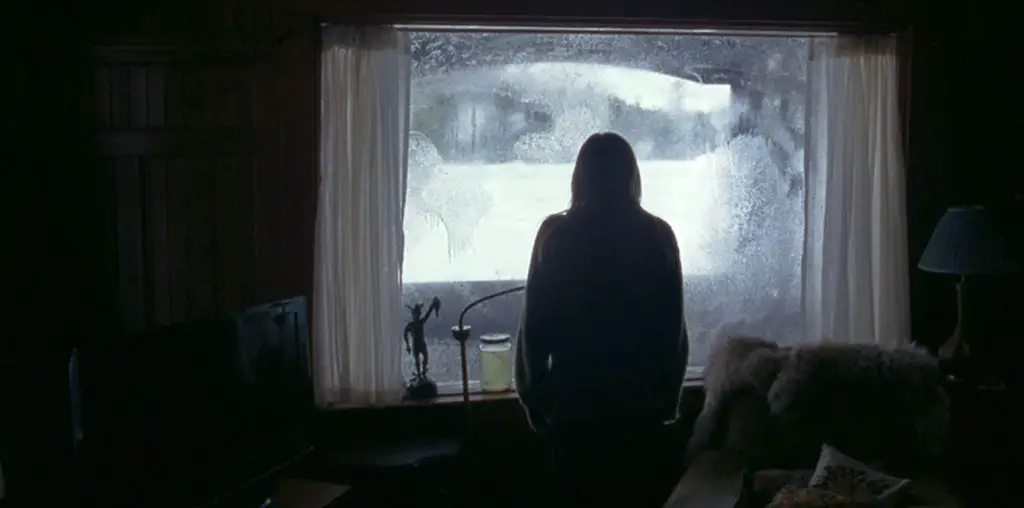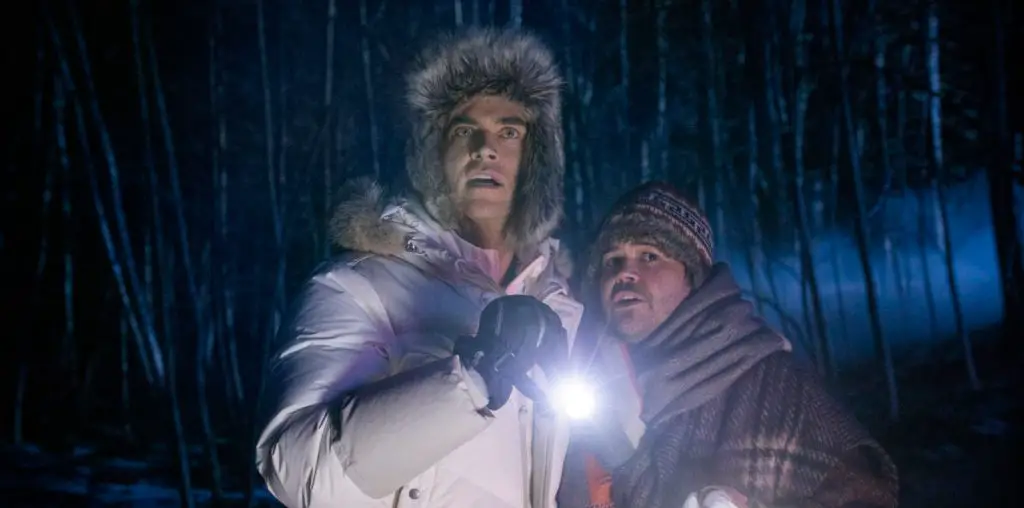
Most people associate public access broadcasting with amateurish, abominable bumbling. But every now and then, a work of inspiration and imagination pops up in this unlikely environment. For viewers in southwestern Connecticut, a genuine comic artist produces, directs, writes and stars in an extraordinary weekly comedy show: Ricky Mestre, who leads a jolly ensemble of gifted comics in The Ricky Mestre Show.
Mestre recently released his finest offerings in the DVD The Best of the Ricky Mestre Show. Mixing hilarious take-offs on Hollywood epics, pop music and vaudeville style rat-a-tat-tat joking, “The Best of the Ricky Mestre Show” offers more true laughs and rich originality than many a Hollywood endeavor.
Outside of video production, Mestre is also an accomplished artist and has recently been the subject of a one-man exhibition in Bridgeport, Connecticut. Film Threat caught up with him at his gallery to talk about the art of making comedy and using public access as a launchpad for the proverbial bigger and better.
Do you believe the public access TV format is a good stepping stone for filmmakers trying to build careers? ^ I feel that public access is a good stepping stone for anyone trying to build a career in the media. It gives the producer an opportunity to show what kind of a program he put together. It was particularly good for someone like me, who had no previous formal education in this field. Soundview Media in Bridgeport, Connecticut, has done a great deal providing me with training and experience to advance myself in this line of work. Since I was already a creative person, being taught to use the video equipment was just learning a new tool that I could utilize for artistic purposes. It has helped me to be expressive in a new medium. Doing work regularly for public access can give you the hands-on experience to do greater things, because you see first hand the kind of dedication and time it takes to produce one show.
You have been fortunate to work with an incredibly gifted ensemble of gifted comic actors. Where did you find all of these funny people? ^ It might be interesting to know that most of my cast started off not associating themselves with being comic-actors. It was not until they became part of my cast that they embraced their humorous abilities in acting.
The people who have appeared on my show are, for the most part, good friends of mine that pretty much started doing this as a favor to me. Celia Ortiz, for example, is a devoted wife, mother and grandmother working two jobs. She coordinates a youth group theater club at her church and goes to dance practices, yet still set out time to be a regular cast member. (I met her working in a summer camp at a grammar school in Bridgeport, where she was directing the theater classes and I was teaching the painting classses – we both auditioned for and landed roles in the Original Works Inc. production of “Marginal Saints” performed at the Downtown Cabaret Theatre in Bridgeport). I met Waleska Morales when I started working for an afterschool program for Aspira that she was pretty much handling alone – we ended up costarring in the “Marginal Saints” play together, where she was one of the leads). Miguel Padilla is a full-time student involved in numerous extracarricular activities and became my most devoted cast member, helping me with every aspect of this show. He brainstormed with me countless nights for ideas and helped to write some of the material. He also learned to use the equipment and got other cast members to sign up for the video training, and he also taught me a thing or two about editing. He singlehandedly designed the website for us (not bad for his first attempt at it). Xavier Albelo was brought on board through the help of Waleska. He was probrably the only one who I didnt know on a personal level before casting him. Waleska told him to watch an episode of the show that she was going to be in and suggested that we get connected. It ended up working out nicely and he also became a familiar face on the program. I actually met Kathy Ruiz years ago while doing “West Side Story” for the McGiveny Community Center in Bridgeport; I played Tony and she was a “Shark” gang member (she had to hide all her hair in a hat to be a boy for the role). I’ve known Luis the longest, while he was in Bassick High School – I was his college mentor and we were involved in a program that fixed high school students with college students called MAACS (Motivation for Academic Achievement and College Study). Luis found himself learning the art of television production. I was his first guest on his show “Boom City” and came periodically to help before I signed up for the training myself with a few ideas of my own. Steve Korosh was heavily involved in Luis’ show and that’s how I got to know him. However, he never wanted to be in front of the camera – somehow I managed to get him out of that. How I did it? Beats me!
A lot of comedy (on TV and in movies) is just not funny. But your show is consistently funny. What is the secret to your ability to get laughs? ^ Wow! “Consistently Funny!” That’s funny. I’ve always just been silly in my own moronic way and use this show to channel that. People tell me I’m not “acting” but just being myself. However, I never thought of myself as a comedian prior to this show. I think what helps our show a lot is the fact that all our cast members are completely comfortable around each other – they work well together and can feed off each other. As for “the secret”– well, I guess it’s a secret to me, too. Because a lot of the funniest stuff just seems to happen by accident and it is caught on tape.
Have you ever shot material which turned out to be completely unfunny? If so, what went wrong and how did you learn from those mistakes? ^ Some of the material that was completely unfunny was probably the stuff that was just too big of a personal joke that nobody understood. I later learned to tone down on the stuff that only a few people could understand and focus on speaking in a more universal tongue. Even so, sometimes the goal wasn’t to be funny but to create something we were proud of (which sometimes ended up getting a laugh). In another situation, we filmed a scene where Miguel was dying and Kathy was to become overemotional. After I edited it and put the music on it, I was told how sad that scene was since Kathy was so convincing – and I thought: “Boy, that wasn’t funny!”
Do you see yourself heading for a moviemaking career? ^ I see myself heading SOMEWHERE. where the path of life takes me is already written somewhere for me to uncover. let it be movies, television, theater, art galleries, who knows right now- but I’d do it all if I could.

